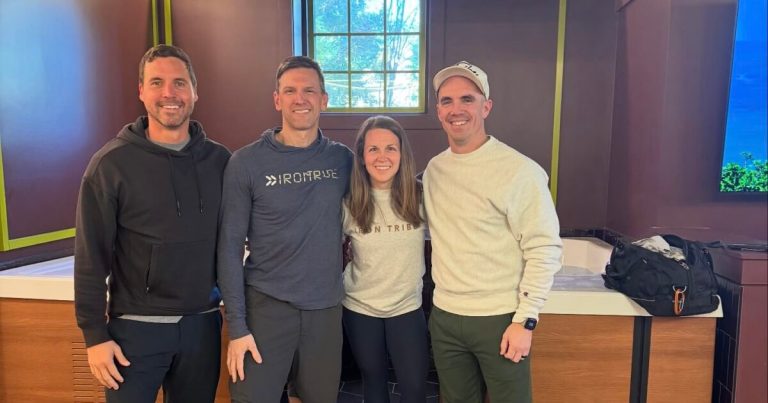Reviewed by: Patience Itson
How to deal with + talk with your kids about tragedies—advice from 2 Birmingham experts
Reading time: 6 minutes

After Tuesday’s school shooting in Uvalde, Texas, parents are swimming in a dizzying swirl of feelings and end-of-year activities. First, how do we manage our own emotions? Second, how do we talk with our kids about this or other tragedies? We reached out to two local experts to for advice. Here’s what they said.
Meet the experts


- Daniel S. Marullo, PhD, Clinical Psychologist with Children’s of Alabama
- Kayla Bevels, Psychiatric Mental Health Nurse Practitioner with Alabama Psychiatry, a practice affiliated with Brookwood Baptist
Bham Now: What do you say to parents who are trying to process yet another preventable tragedy while trying to figure out what to say to their kids?
Marullo: “Nobody expects parents to have all the answers. Be who you are, and that means being authentic, raw and vulnerable. Sometimes it’s okay to say ‘I can’t talk about this right now, because it’s painful for me.’ Then come back and visit it later.
When you do talk, be honest and talk with your children, in an age-appropriate manner. If you have more than one child, you may need to have different conversations with each one.
If we show grief or anger in a way that’s real and constructive, that’s okay. It teaches our children and it also provides a sense of safety.”
Bevels: “Be up front with your children if they want to talk. Comfort them and assure them that school officials and law enforcement are doing everything they can to ensure that these types of events do not happen.”
Bham Now: How do you recommend parents deal with the grief of celebrating their own children’s achievements and milestones, knowing so many other parents have had that joy taken from them?

Marullo: “It’s important for parents to address their grief, but also celebrate those things that are there to celebrate right now—and there are lots of them.
That’s modeling for our children how to manage life’s traumas—and there are also plenty of them.”
Bevels: “Everyone grieves differently, and there will be waves of emotion. Talk with a therapist or mental health provider if you’re having trouble overcoming your thoughts and/or feelings.
Do spend time with your children and celebrate these moments together.”
Bham Now: What do you suggest parents do with the rage and powerlessness so many feel right now?
Bevels: “Don’t bottle it up. Talk to someone. Find a positive outlet and do things you enjoy. Keep your routine. Come together with other parents to support each other and fight for resources for your children.”
Marullo: “This is a time for action. Most of us are not legislators, but we can certainly turn our anger and frustration into action. Locally, we can go into our schools and have a real conversation about ‘what plans do we have in place to keep our kids safe?’ If there’s not a plan, work with the school to come up with one.
You—and your kids, depending on their age—can get involved and advocate for legislative change. Taking action is one way we learn not to be powerless.
I would encourage people, whatever level their comfort or skill level is, to get engaged, whether that’s collecting money for the Red Cross or standing in front of Congress to testify.”
Bham Now: In a situation like this, do you recommend talking to children about what happened or sheltering from the news?
Marullo: “Children are learning to be adults, so they’re learning how to cope and manage the stresses in their lives, including these kinds of traumatic events. The only way they’re going to know how to do that is by watching us and having those conversations.
Even the youngest kids have access to information about what’s happening in the world, but they don’t have context. So parents do need to have conversations with your kids, while being mindful of the child’s age and developmental level.
So, preschoolers need to know they are loved, and the grownups in their life are there to protect them. Teenagers have a better understanding of the world, but need context and sometimes support to take action.
At the same time, parents want to monitor their kids’—and their own—level of exposure to the media and social media, which can feed anxiety.
When you deal openly with these things with your kids, it makes it okay for our kids to talk about what they’re going through. You’re showing your kids that it’s okay to talk with you about hard things and it’s okay to come to you if they’re feeling upset, scared, etc. You don’t have to have all the answers.”
Bevels: “Talk to your children if they have questions or want to talk about the event. For younger children, relate a behavior they get in trouble for, like hitting, and explain that that is a bad decision. Explain that this boy made a bad decision and unfortunately it resulted in hurting others.
Let the child know that they can talk to an adult when they are angry or upset and if the shooter had talked to someone about his feelings instead of acting on his feelings, then this may not have occurred.”
Resources
- PIRC: Psychiatric Intake and Response Center, Children’s of Alabama: 205-638-7472—a resource for parents if your child is acting out or having a tough time. Can advise what to do and also provide referrals.
- UTalk Youth Line: 205.328.5465
- Crisis Center Crisis Line: 205.323.7777—a resource for parents if you are facing a crisis situation with your child.
- 911: Call if your child is at imminent risk of hurting themselves or someone else and get them to a local emergency department.
Get updates like this delivered to your inbox daily. Sign up for Bham Now’s free newsletter today.



